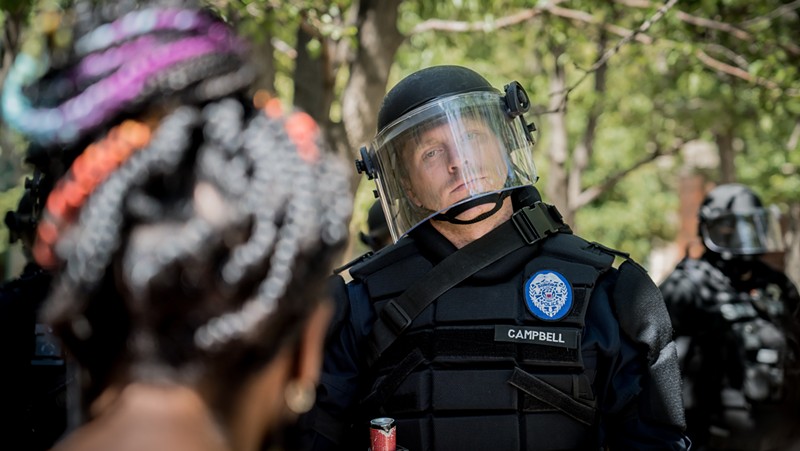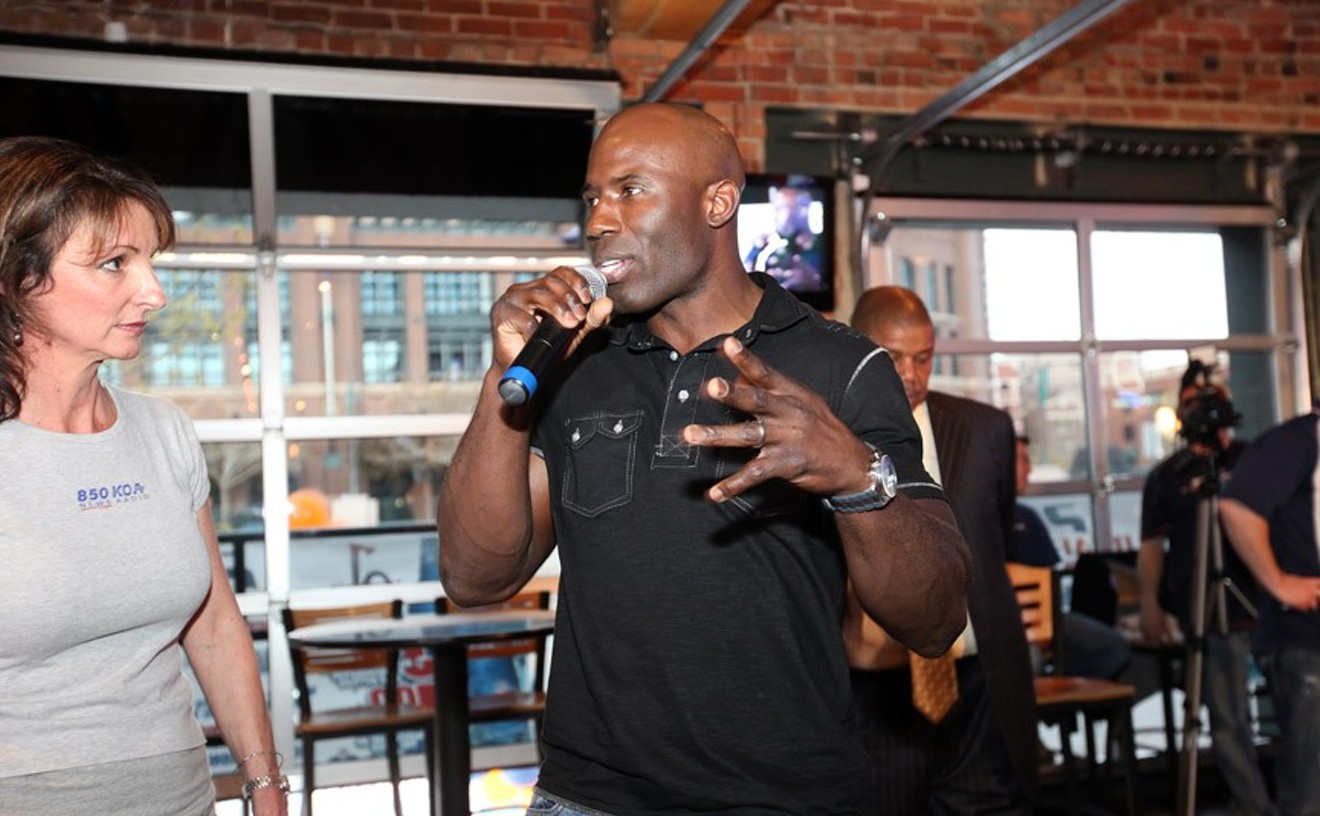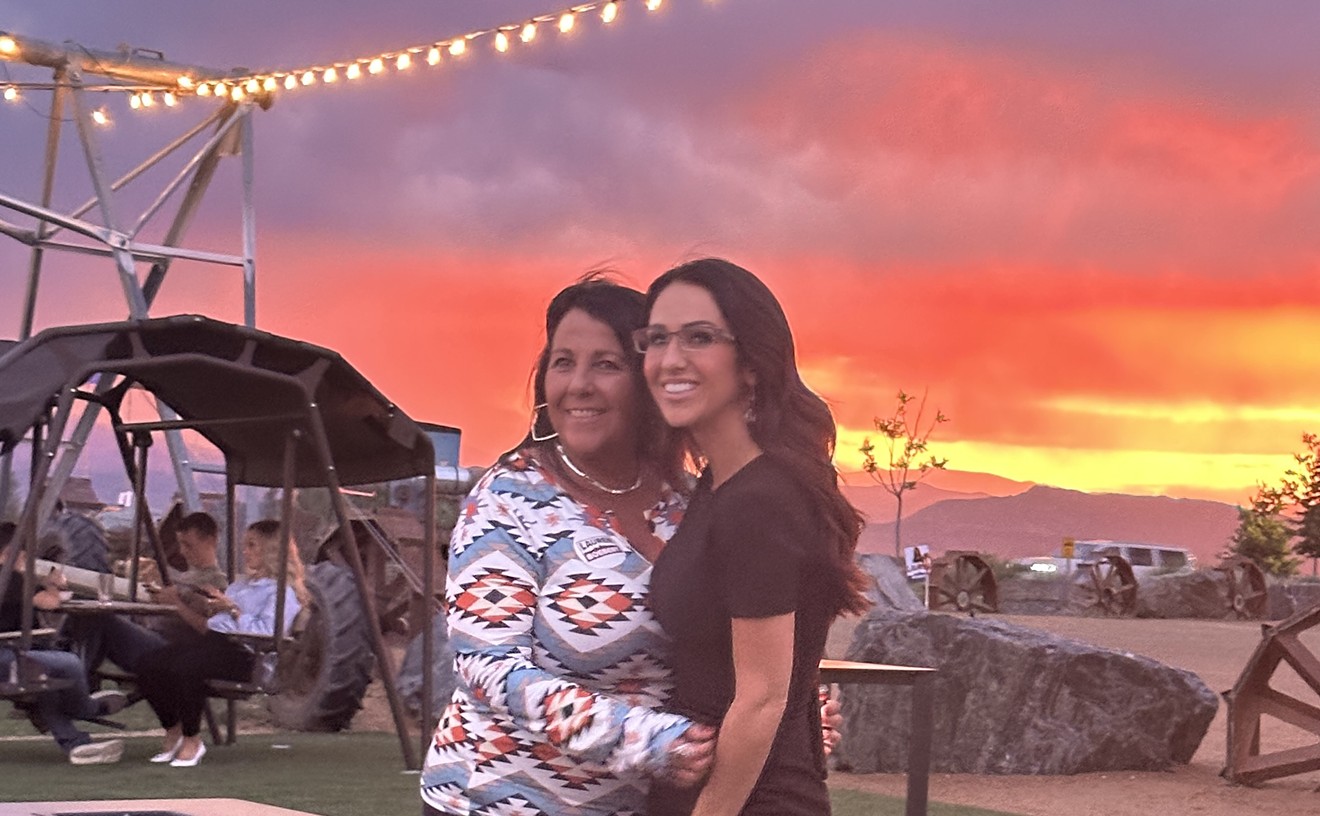Fallout for Aurora continues in connection with the August 2019 death of Elijah McClain, a 23-year-old unarmed black man who was attacked by police officers despite having committed no crime; a 911 caller alerted authorities after seeing him dancing to music while wearing a ski mask. The latest hit involves a class-action lawsuit against the city, among other defendants, as a result of its reaction to a June 27 rally in which musicians playing violins in tribute to McClain, who loved the instrument, were among hundreds of people rousted by officers armed with pepper spray and more.
"The situation was so asymmetrical," says attorney Mari Newman, who filed the complaint in conjunction with Andrew McNulty, her colleague at Denver-based Killmer, Lane & Newman LLC, and represents McClain's family. "Officers met violinists and calm, peaceful audience members with a massive demonstration of intimidation and physical force."
The named plaintiffs in the suit are Lindsay Minter, Pastor Thomas Mayes, Kristin Mallory, Tyler Sprague and Alissia Acker, and because of its class-action structure, other rally attendees can join them. The defendants beyond the City of Aurora include interim police chief Vanessa Wilson and multiple law enforcers referred to by pseudonyms such as "John & Jane Does 1-100."
Neither the city nor the Aurora Police Department have responded to Westword's request for their take on the lawsuit, but Aurora City Attorney Daniel Brotzman declined to comment to ABC News, noting that officials had not yet been served with the complaint.
Some of those who came together in Aurora on June 27 engaged in civil disobedience; Interstate 225 was temporarily shut down for a time when demonstrators swarmed onto the highway. But the portion of the lengthy demonstration that got the most attention was an Aurora police crackdown during the evening violin memorial outside the Aurora Municipal Center.
The results can be seen in this video from the U.K. Guardian, whose coverage epitomizes the international outrage over what went down:
In the aftermath, the Aurora Police Department objected vociferously to assertions by 9News that "smoke" was used to clear protesters, tweeting, "Aurora Police Department did not use tear gas last night during the protest. The reports that we used tear gas are FALSE. Pepper spray was used after a small group of people gathered rocks/sticks, knocked over a fence & ignored orders to move back. Tear gas was not used."
For her part, Newman notes that "people were experiencing coughing, shortness of breath and all the telltale signs of a more noxious chemical agent." But disagreements over what caused the clouds that engulfed the crowd are secondary to facts that, in her view, are beyond debate.
"When Aurora decided to declare that the gathering was quote-unquote 'an unlawful assembly,' there was no legal justification for that," she asserts. "People who were present, and even people looking to see if anyone was misbehaving or throwing rocks or any of the things Aurora claims, weren't able to find any evidence of that. So there was no legal justification for officers to descend upon the entire violin vigil and spew noxious gas in the air over community members, including families attending this vigil celebrating Elijah's life."
Then, she continues, "in a massive show of intimidation, these officers marched in on what they call the Great Lawn and pushed people off the lawn — and when people didn't move, they used pepper spray in their faces, and prodded and even hit them with batons."
Like Aurora's claims of transparency despite repeated attempts to bury bad news about McClain in Friday afternoon news dumps, the city's insistence that the officers did nothing wrong is proof to Newman that "actions speak louder than words. This outrageous treatment of peaceful protesters and vigil attendees is one more example of a department that is totally out of control. And its actions were particularly surprising in light of the fact that only about a month ago, a United States federal court judge issued an injunction against the City of Denver for using the same kinds of force against protesters there. Aurora was absolutely on notice that its conduct was illegal, and yet it couldn't resist."
Many lawsuits involving police include calls for training, in the hope that education might prevent such abuses in the future, but that's not the case with this one. According to Newman, "Aurora has shown time and time again that it is apparently immune to better training. Over the course of the last two decades, I have entered into settlement agreements with the City of Aurora that required mandatory policy changes and training, and unfortunately, Aurora's ongoing constitutional violations make it clear that's simply not enough."
As a result, the section of the complaint dedicated to injunctive relief supplements requests for punitive and compensatory damages with demands for "enjoining Defendants from using chemical agents, including pepper spray, against those exercising their rights of free speech and assembly; enjoining Defendants from shooting projectiles indiscriminately into crowds of those exercising their rights of free speech and assembly," and "requiring all Defendant law enforcement officers deployed to police demonstrations [to] have their body-worn cameras recording at all times, and forbidding officers from intentionally obstructing the camera or recording." In addition, "any and all orders to disperse must only be given when there is imminent danger of harm to persons (not property)," and "any and all orders to disperse must be followed by adequate time for the intended audience to comply, and officers must leave room for safe egress; if it appears the intended audience did not hear the order, the order must be repeated multiple times before the crowd is dispersed."
Around the time the lawsuit was filed, another piece of news related to the McClain case broke: Fox31 revealed that Jason Rosenblatt, one of the officers who'd responded to the 911 call about McClain, had filed suit against Aurora city leaders over his firing. Rosenblatt was canned not for contributing to a young man's death, but for texting "HaHa" after seeing a photo of fellow cops at the site of the attack, making sport of chokeholds like the ones that were applied to McClain with devastating effect.
Newman, who previously expressed confidence to Westword that Rosenblatt's firing, as well as those of two cops in the photo, would stand up, doesn't try to hide her disgust. "The audacity is really stunning," she says. "It just shows how incredibly out of touch he is to believe that he is suited to be a law enforcement officer after everything he has done."
At 5 p.m. Saturday, July 25, a rally titled "Solidarity With Portland Action and Justice for Elijah McClain" is scheduled to take place at Aurora Police Department headquarters, 15001 East Alameda Parkway, a short distance from where the violin vigil was held. Click for more details, as well as to read Lindsay Minter, et al., v. City of Aurora, et al.
[
{
"name": "Air - MediumRectangle - Inline Content - Mobile Display Size",
"component": "12017618",
"insertPoint": "2",
"requiredCountToDisplay": "2",
"watchElement": ".fdn-content-body",
"astAdList": [
{
"adType": "rectangle",
"displayTargets": "mobile"
}
]
},{
"name": "Editor Picks",
"component": "17242653",
"insertPoint": "4",
"requiredCountToDisplay": "1",
"watchElement": ".fdn-content-body",
"astAdList": [
{
"adType": "rectangle",
"displayTargets": "desktop|tablet"
},{
"adType": "rectangle",
"displayTargets": "desktop|tablet|mobile"
}
]
},{
"name": "Inline Links",
"component": "18838239",
"insertPoint": "8th",
"startingPoint": 8,
"requiredCountToDisplay": "7",
"maxInsertions": 25
},{
"name": "Air - MediumRectangle - Combo - Inline Content",
"component": "17261320",
"insertPoint": "8th",
"startingPoint": 8,
"requiredCountToDisplay": "7",
"maxInsertions": 25,
"watchElement": ".fdn-content-body",
"astAdList": [
{
"adType": "rectangle",
"displayTargets": "desktop|tablet"
},{
"adType": "rectangle",
"displayTargets": "desktop|tablet|mobile"
}
]
},{
"name": "Inline Links",
"component": "18838239",
"insertPoint": "8th",
"startingPoint": 12,
"requiredCountToDisplay": "11",
"maxInsertions": 25
},{
"name": "Air - Leaderboard Tower - Combo - Inline Content",
"component": "17261321",
"insertPoint": "8th",
"startingPoint": 12,
"requiredCountToDisplay": "11",
"maxInsertions": 25,
"watchElement": ".fdn-content-body",
"astAdList": [
{
"adType": "leaderboardInlineContent",
"displayTargets": "desktop|tablet"
},{
"adType": "tower",
"displayTargets": "mobile"
}
]
}
]












